#island bird
Explore tagged Tumblr posts
Text

I have to hand it to Donald Trump, I didn’t think the sequel to the 1932 Great Emu War would be a trade war against the penguin nation but he truly continues to be an innovator in the stupidity industry
#us politics#politics tw#donald trump#truly nothing encapsulates the level of competence in play here#as levying ‘reciprocal tariffs’ on islands that don’t import or export#or particpate in commerce#because they don’t have a government or economy#and are only inhabited#by flightless birds#anyway if penguin nation decides to declare total war in retaliation I think they should get to use nuclear weapons#if they take down the nuclear submarines and claim the warheads that’s just the nature of war probably
28K notes
·
View notes
Text
A muppet dinosaur
#birds#birding#great blue heron#nature#nature photography#vancouver island#pnw#bird photography#birdwatching#queue#original photography on tumblr
12K notes
·
View notes
Text

More of my artwork from Nature by NorthStar Games. This is the Flight module's Faraway Place, a tropical island paradise for birds to migrate to that can't be reached by predators or competitors. Based on a photo I took at a real world location that's very close to my heart - does anyone recognize specifically which island this is?
#birblr#birds#scientific illustration#board games#saipan#artists on tumblr#tropicbird#tern#noddy#tropical island
3K notes
·
View notes
Text
"In an unprecedented success for conservation efforts, a tiny population of Guam kingfishers given a new home has laid its first eggs—after 40 years of the species being extinct in the wild.
Exterminated from its Guam island home by invasive brown tree snakes, the kingfisher, known by Guam locals as a ‘sihek’, has survived entirely in captivity, managed by a global collaboration of conservationists called the Sihek Recovery Program.
The program introduced the birds to the Palmyra Atoll thousands of miles from Guam in order to create a wild-born population that can regain natural skills until their native island has been cleared of the invasive reptile—and the sihek can return to its ancestral home.
GNN reported in September of 2022 that 20 sihek eggs were set to be transferred to Hawaii to be born in an aviary with conditions and flora similar to that of Palmyra Atoll.
The journey to recovery would be long, complex, and in some ways unprecedented. In order to reduce the risk of foreign germs or parasites spreading to atoll, the resulting sihek chicks were going to be hand-reared until 9 of them could be transferred in cages to Palmyra.
After getting their “ticket to ride” by the vet traveling with them, they would finally be able to return to the wilderness. But the program teams didn’t know which of the available prey species the sihek will favor, didn’t know what time of year, considering the 365-day perfect temperatures, the birds will breed, or how far they would disperse.
But despite the miles and the unknowns, their remarkable release last autumn was a success by any reasonable metric. Four female and five male birds quickly explored their new home, learning how to forage and hunt new prey within the tropical forest.
Four pairs have since established territories, built nests, and laid eggs, marking the first time the species has bred in the wild since its extinction from Guam in the 1980s...
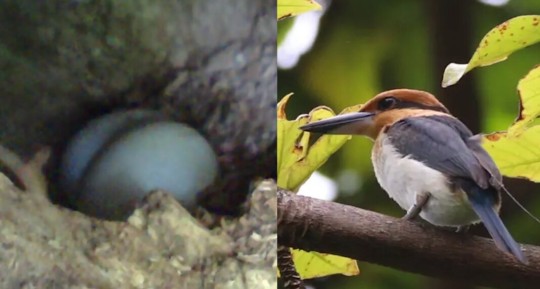
Pictured: First confirmed wild-laid sihek eggs in almost 40 years
With the mated pairs less than a year old, this is their first time incubating and caring for eggs, meaning it’s likely it will take a few rounds of egg laying for the birds to hone their skills and hatch chicks, a statement from ZSL read. Nonetheless, these eggs demonstrate both the tremendous resilience of these remarkable birds and the power of conservation to create a second chance for species on the brink of extinction.
“After many long days last year looking after these birds when they were just tiny eggs and chicks, it’s so rewarding to see them beginning their journey towards raising their own chicks in the forests of Palmyra Atoll,” Charlotte James, one of the London Zoo bird keepers who hand-reared the birds.
“It’s hard not to feel like a proud parent seeing them out there thriving and making history—and an honor to be part of the ongoing mission to bring sihek back from the brink of extinction.”
Plans are underway for more young sihek to be released at Palmyra Atoll this summer. Egg laying season is underway at participating (Association of Zoos and Aquariums) AZA-accredited institutions across the US. As they grow to maturity, these chicks will also journey to Palmyra, with the ultimate goal of establishing ten breeding pairs there. The wild sihek at Palmyra Atoll will pave the way for a growing, wild sihek population for the first time in decades.
Then maybe, just maybe, at some point in the distant future, the descendants of these birds who’ve regained their wild skills will be able to practice them on the island of their origin once again."
-via Good News Network, April 26, 2025
937 notes
·
View notes
Text


Petit Manan Lighthouse, Petit Manan Island, Steuben. Possibly my favorite lighthouse. In the summer, this island is home to hundreds of birds. Including Atlantic puffins, arctic, common and roseate terns, as well as black guillemots and many more. Decided I couldn't draw them all, but here's a couple attempts to try and capture the island's vibes. Can you spot the oystercatchers? MERCH
#Petit Manan#Petit Manan Island#Petit Manan Light#Petit Manan Lighthouse#Steuben#Maine#Lighthouse#light#island#Maine island#art#illustration#design#sticker#National Wildlife Refuge#Maine Coastal Islands National Wildlife Refuge#Maine Coastal Islands#breeding colony#terns#tern colony#puffin#Atlantic puffin#black guillemot#sea birds#sea bird#arctic tern#flying#in flight#bird#birds
3K notes
·
View notes
Text
Five years after a massive effort to remove invasive mice and rats from Lord Howe Island, the unique ecosystem is experiencing what is being called "an ecological renaissance" as the endangered flora and fauna recovers.
Lord Howe Island woodhens were reduced to only 30 individuals in the 70s due to egg predation from the invasive rodents, but in just the last five years the population has jumped from 200 to over 2,000.
From the article:
"It's just amazing, the changes that have happened in the forest--it has blown me out of the water really. I thought it would change but I just can't believe how quickly things have been happening."
#conservation#biodiversity#bird conservation#island conservation#plant conservation#ecology#hope#hopepunk#environment#invasive species#conservation works#conservation success stories#radical optimism#endangered species#ecological grief#ecoanxiety
1K notes
·
View notes
Text

Tobogganing penguins By: W. R. Curtsinger From: The Fascinating Secrets of Oceans & Islands 1972
963 notes
·
View notes
Text

"What is to come"
(image id is both in the alt text and below the read more- I put it under one because it's incredibly long)
And so there we have it, the 200+ followers artpiece that I have been working on for several days, if I had to guess I'd say it took 25 or so hours over eleven days. Honestly it's so surreal to me that I'm here with over 200 followers (260 as of typing this- yes, I procrastinated on this), especially when I only hit 100 followers in February. It's genuinely really nice to know that people are actually interested in my art (before anyone brings up spam bots- I know there are a few of them amongst my followers but I've checked most of them and I am 100% confident that over 200 of them are real). I don't really have much else to say really- I'm just grateful to have the support. Thanks y'all :).
[Image id: a large, lineless digital drawing of several dinosaurs. It is nighttime. At the bottom of the piece, a lone Eoraptor lunensis is walking across the floodplains- both the ground and the Eoraptor are just silhouettes, the early dinosaur has been given protofeathers. The full moon is shining, it's size is exaggerated for artistic affect. Behind the moon, the heads of sixteen different dinosaurs can be seen (listed left to right, bottom to top) Row 1- Thecodontosaurus antiquus (small sauropodomorph with light brown protofeathers, near-white undersides, straight stripes that are moderately darker than the base colour and vibrant green eyes), Coelophysis bauri (small early theropod with a long and narrow skull, its protofeathers are golden and black. A soft orange stripe runs across the back of its head, it has warm brown eyes. Row 2- Plateosaurus trossingensis (long-necked sauropodomorph, it has reddish-brown scales, light undersides, triangular stripes running down it's spine that get bigger the further down they get and pale yellow eyes), Heterodontosaurus tuckii (small ornithopod with a hooked grey beak. It has spiky green feathers, a lighter chest and a darker stripe running along its head and back, there are three small spots on its face, two behind the eye and one infront of it, it's eyes are bright yellow). Row 3- Megalosaurus bucklandii (medium-sized theropod with warm brown feathers, lighter undersides, dark spots and bright yellow eyes, there are several scars on its face), Brachiosaurus altithorax (greenish-grey true sauropod with lighter undersides, a dark pink patch on its throat, dark desaturated brown eyes and a few small scars on its neck), Archaeopteryx (early toothed bird with a black head, white neck and bright yellow eyes). Row 4- Hylaeosaurus armatus (pale brown ankylosaur with lighter undersides and vibrant green eyes), Velociraptor mongoliensis (dromaeosaur with light brown feathers, a lighter chest, a black stripe near its eye and light green eyes), Sinosauropteryx prima (small compsognathid theropod with ginger protofeathers, an off white mask and undersides and pale yellow eyes), Iguanodon bernissartensis (large greenish-grey ornithopod with a slightly darker back, pale undersides, a grey beak, and yellow eyes). Row 5- Matuku otagoense (heron with medium grey feathers and a small crest. A red stripe runs from just behind its nostrils to about a third of the way down its neck. Its undersides are white, its beak is grey and its eyes are brown), Triceratops prorsus (three-horned ceratopsian with grey-brown scales, lighter undersides, two triangular stripes between it's brow and nasal horns, reddish-orange diamond-like stripes on its frill, a hooked grey beak and golden eyes. Its brow horns curve forward at the base. Row 6- North Island brown kiwi (plump brown bird with a long pale beak, whiskers and black eyes, its nostrils are at the tip of its bill, and unlike the other dinosaurs in the sky part of its body below the neck is visible), male house sparrow (small redish-brown and grey bird with a black bib below it's bill), it has brown eyes and a dark grey bill. Row 7- rock dove (grey bird with iridescent green feathers scattered across its neck, a dark grey beak, and warm brown eyes). end id]
#art#my art#digital art#paleoart#dinosaurs#birds#eoraptor#thecodontosaurus#coelophysis#plateosaurus#megalosaurus#brachiosaurus#archaeopteryx#hylaeosaurus#velociraptor#sinosauropteryx#iguanodon#matuku#triceratops#north island brown kiwi#house sparrow#rock dove
3K notes
·
View notes
Text
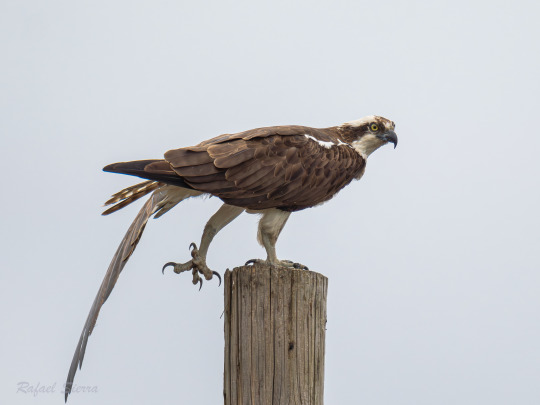
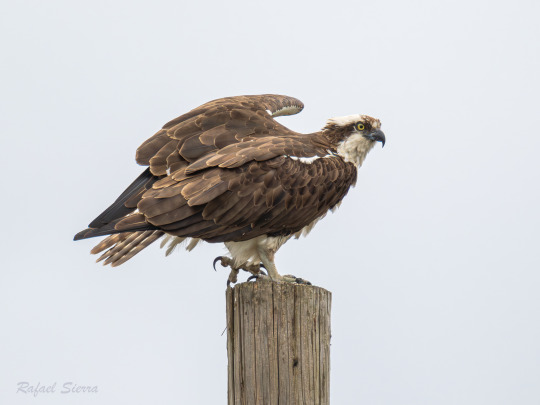
Osprey stretching its lethal talons before the hunt
Sauvie Island, OR
#osprey#suavie island#original photography#photographers on tumblr#raptors#birds#bird photography#photography#nature photography#oregon#PNW#pacific wonderland#pacific northwest#om system#om 1#rafefar#talons
2K notes
·
View notes
Text

Who invited this guy to the Yoshi meeting? 🤨
#yoshi#yoshi’s island ds#doweesig art#yoshi’s island#baby mario#baby peach#stork#bandit#mario#princess peach#yoshis island#yoshis island ds#super mario#peach#nintendo#my art#comic#the angry birds movie#angry birds
1K notes
·
View notes
Text
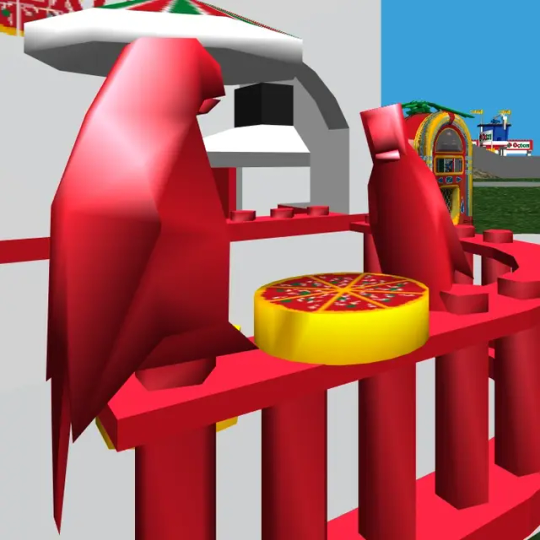
Mr. and Mrs. Pollywanna from LEGO Island
#mr and mrs pollywanna#parrot#bird#lego island#thank you for your submission!#i love them#and i hope they had a wonderful meal
5K notes
·
View notes
Text


#birds#birding#bird photography#nature#nature photography#vancouver island#pnw#birdwatching#queue#original photography on tumblr#great blue heron
758 notes
·
View notes
Text

South Island takahē (Porphyrio hochstetteri)
© Aaron Skelton
881 notes
·
View notes
Text
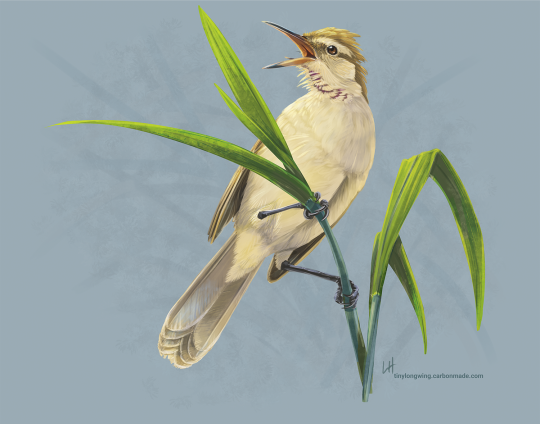
Ga'ga karisu, Saipan Reed-Warbler (Acrocephalus hiwae) is a critically endangered species found in the Northern Mariana Islands. Though few remain due to habitat loss, they fill the air with their rich melodic songs in those places where they can still hold on.
Their closest relative, the Nightingale Reed-Warbler of Guam, is extinct due to habitat loss and the invasive brown tree snake.
#endangered species#endangered birds#scientific illustration#birblr#saipan reed-warbler#reed-warbler#nightingale reed-warbler#northern mariana islands#pacific islands#artists on tumblr
3K notes
·
View notes
Text
"Despite being arguably the most famous island chain in the world in terms of biodiversity, the Galápagos Islands are still surprising scientists today.
A bird seen and recorded by Charles Darwin on his visit to Floreana island in 1835 has been observed in the wild there for the first time in 190 years.
Darwin’s observations from the small, south-central island in the volcanic chain included the presence of a small, secretive bird called the Galápagos rail (Laterallus spilonota).
Just two years ago, several organizations began work on the large-scale Floreana Island Restoration Project. By removing invasive species that devastated native wildlife for generations, the local environment once again became a haven for species to recover and thrive.
The Galápagos rail, a land-bird endemic to the archipelago, has been severely impacted by these invasive species. It dwells on the ground, is extremely vulnerable to predators, and relies on dense, lush vegetation to hide in. But despite these dangers, the rail has proved to be a resilient and resourceful little bird.
The rails, locally known as Pachays, have been quick to return to restored islands. In 2018, six years after the conservation nonprofit Island Conservation successfully removed invasive species from nearby Pinzón Island, the Rails were among the first locally-extinct animals to reappear—along with other species such as the cactus finch.
It hasn’t been long since the Floreana Island Restoration Project began, but the rails have already repopulated it.
During their most recent annual landbird monitoring expedition on the island, teams from the Charles Darwin Foundation and Ecuador’s state agency for managing the archipelago recorded the bird’s presence at three distinct sites.
The birds were present and away from human habitation and agriculture, in a grassland shaded by guava trees. Confirmed findings include six acoustic records, two visual sightings, and one photograph. And it isn’t a coincidence that they’re back now—the site has been monitored for the Galápagos rail consistently since 2015, and this is the first year they’re back.
“The rediscovery of the Galápagos rail confirms what we’ve seen on islands worldwide—remove the invasive threats, and native species can recover in remarkable ways,” said Island Conservation’s Conservation Impact Program Manager Paula Castaño in a statement.
“This is an incredible win for Floreana, and fuels our excitement about what other native species might resurface as the island continues its journey toward ecological recovery.”
Next, scientists must use genetic sampling to determine whether these newly recorded birds are from a self-reintroduced lineage or whether there was a tiny population of rails that survived, undetected, for 190 years.
Island Conservation details how that’s not unheard of: on nearby Rábida, the organization’s restoration efforts led to the rediscovery of a species of gecko that was only known to science through subfossil records dated more than 5000 years old. They’d been living on the island in very low numbers for hundreds of years, but it was only once holistic restoration had taken place that they were able to increase their numbers to detectable levels.
MORE NEWS FROM THIS FAMOUS PLACE: 500 Giant Tortoises Reintroduced to Four Galapagos Islands in 2023
With a local population already establishing itself, chances are good for a successful reintroduction. Soon, it’s hoped, Floreana’s grasslands will be home to a large, thriving colony of rails.
“It gives us hope that there might be even more ‘extinct’ Galápagos species to find,” the statement read.""
-via Good News Network, March 3, 2025
#galapagos#galapagos islands#birds#birdblr#endangered species#extinction#conservation#extinct#ecosystem#wildlife conservation#good news#hope
718 notes
·
View notes
Text
Tiny Indian Ocean Island Shows How Quickly Seabirds Recover When Invasive Predators Are Removed https://www.goodnewsnetwork.org/tiny-indian-ocean-island-shows-how-quickly-seabirds-recover-when-invasive-predators-are-removed/
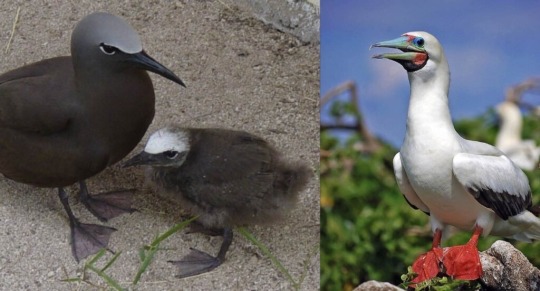
18 years after rats were eradicated, Tromelin Island off the coast of Madagascar is a thriving colony of seabirds once again.
The same story happened over and over during the age of exploration: Europeans brought rats or rabbits on board their ships and dumped them on delicate, pristine island ecosystems.
Hundreds of islands became desolate wastelands this way, damage that has for the most part been reversed, as GNN has reported, in one of the greatest conservation stories ever told.
Now, this small teardrop of sand, rock, and palm trees in the southern Indian Ocean, is the most recent example of conservationists being able to completely rewild a landscape back to a period before European contact.
Spanning just 1 square kilometer, Tromelin Island is now home to thousands of breeding pairs of 7 seabird species like the masked and red-footed boobies.
By 2013, these two species had doubled in number from the precarious, rat oppressed lows of just a handful in 2004. In the subsequent 9 years, white terns, brown noddies, sooty terns, wedge-tailed shearwaters, and lesser noddies all came back on their own initiative.
Matthieu Le Corre, an ecologist at the University of Reunion Island, told Hakkai Magazine how, in some cases, restoring seabird populations can be a tricky thing based on the particular species’ nesting habits.
On other islands where Le Corre has worked, they’ve had to install robotic bird calls and life-size replicas to convince the birds the island is a safe place to nest again. But Tromelin Island needed no such help, since these terns, noddies, and boobies are much more dispersed in their nesting patterns.
“In terms of conservation, it’s a wonderful success,” Le Corre says.
#good news#environmentalism#science#environment#nature#animals#conservation#birds#tromelin island#madagascar#animal protection#baby animals#sea birds#invasive species
1K notes
·
View notes